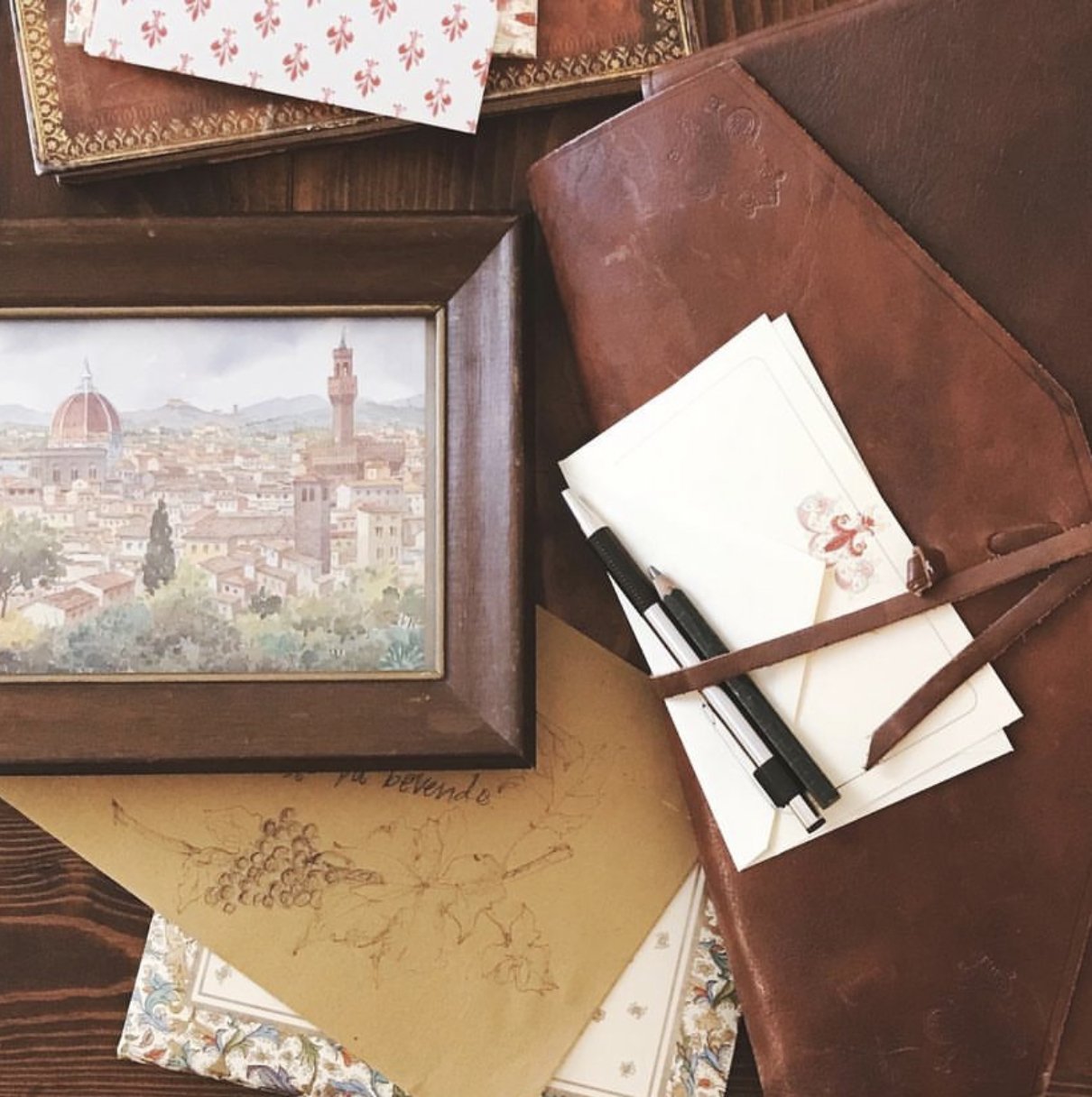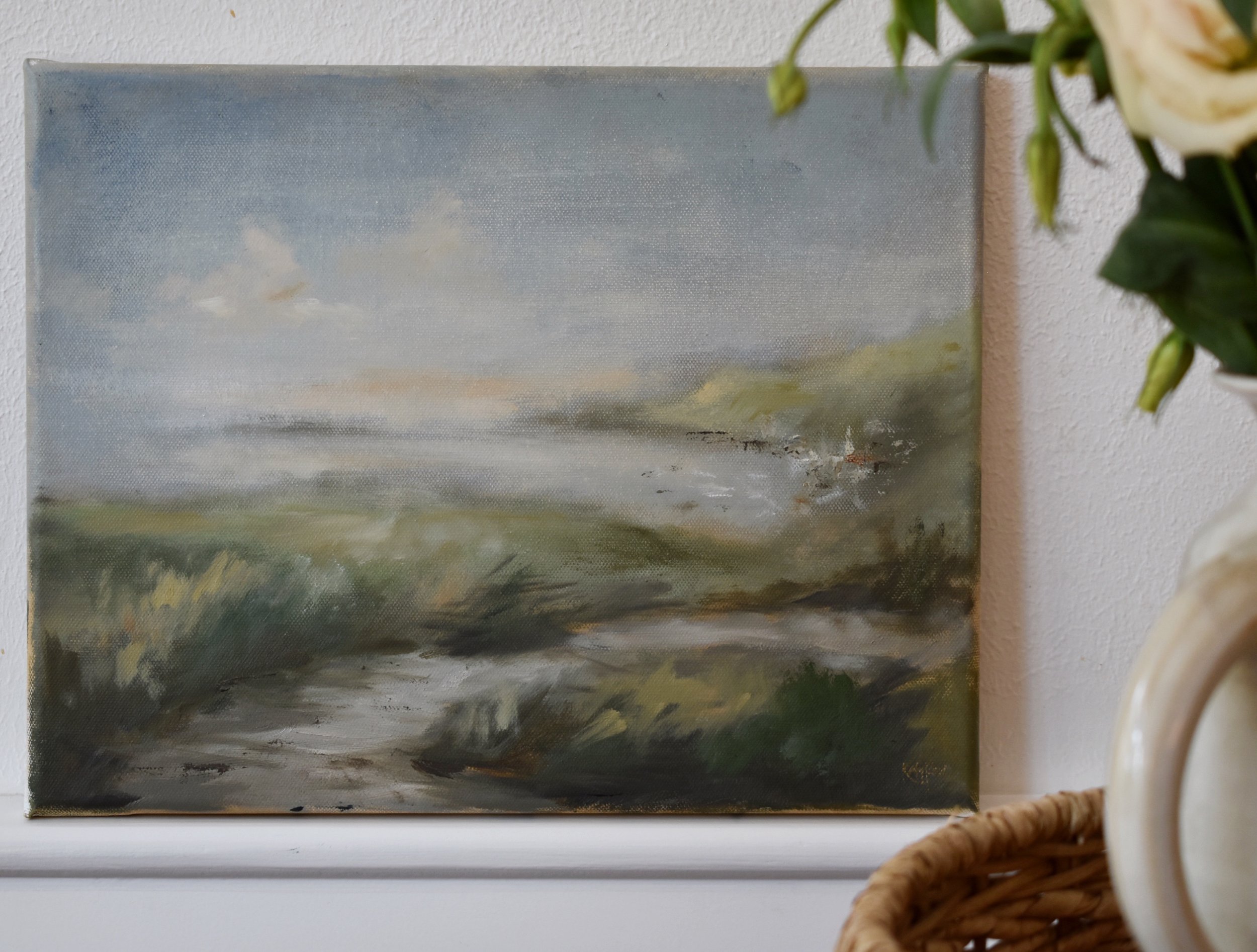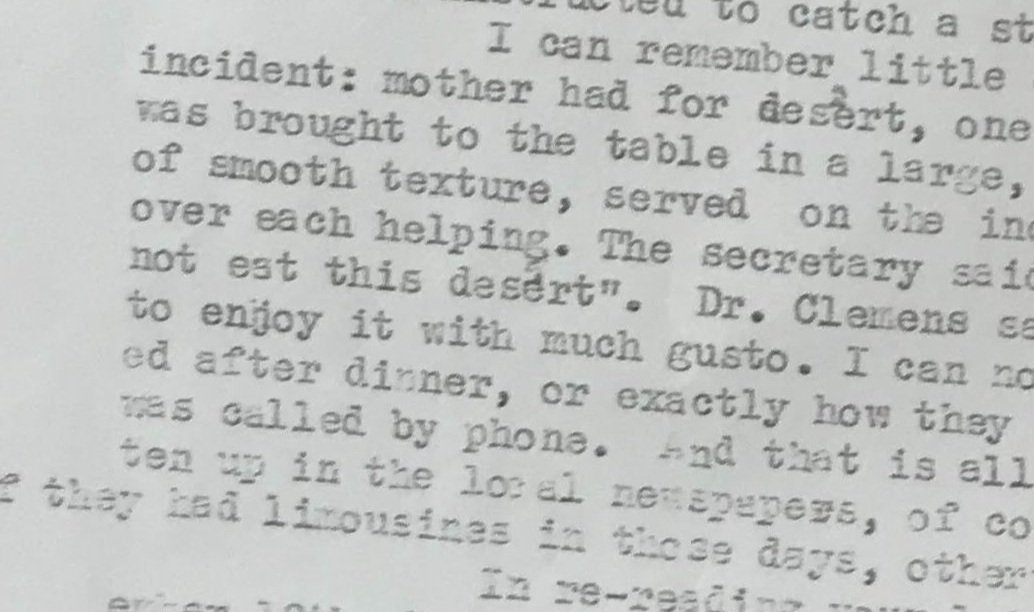
Katy Rose Collection: Art, Words
Peaceful Home Hack: 8:30 Stop Sign
Since I know by now that molehills become mountains after dark, concerns ballooning into catastrophes as my brain loses steam, I set a rule for myself a while back: No worrying after 8:30 pm.
Seems like the worry train likes to barrel down the track right as my head is hitting the pillow, but now with that red stop sign in hand, it screeches to a halt.
If the concern is important enough, I hand it to the Lord and deal with it when I wake in the morning for prayers and reading. Perfect time to sort through what plagues me.
And you know what? The more the habit is halted at 8:30, the less worry ends up infiltrating the rest of my day as well. Boundaries bring freedom. Seems like Jesus knew what he was talking about when he told us to hand our burdens to him.
Sweet dreams!
When I Peeked Into A Writer's Window
It was a bright morning in Maine when we snuck around the side of the old house, peeking in windows. We hadn’t planned to stop at Harriet Beecher Stowe’s home but a historic marker sign told us to. I didn’t know much about the author of Uncle Tom’s Cabin except that she did something revolutionary with her words when she saw repulsive things happening in America. It’s funny how I tend to picture legendary people – somehow endowed with more insight into how things really work, with more hours in a day, and less real life to tend to.
But through the old window was a different picture. The sun streamed onto the wood floors where Harriet’s shadow had once been instead of ours. A displayed letter to her sister read, “Since I began this note I have been called off at least a dozen times – once for the fish-man, to buy a codfish – once to see a man who had brought me some baskets of apples – once to see a book man…then to nurse the baby – then into the kitchen to make chowder for dinner and now I am at it again for nothing but deadly determination enables me to ever write – it is rowing against wind and tide.”
The same woman who had been credited with the outbreak of the Civil War due to her book’s exposure of slavery, also nursed the baby, bought groceries, made dinner, and wrote to Sister.
When she was a young teenager, there was a pivotal Sunday when the words of the pastor, who was also her father, struck her. “As soon as father came home and was seated in his study, I went up to him and fell in his arms, saying, ‘Father, I have given myself to Jesus, and He has taken me.’ I shall never forget the expression on his face as he looked down into my earnest childish eyes…’Is that so?’ he said, holding me silent to his heart as I felt the hot tears fall on my head.”
She knew the joys, as well as the excruciating pain of parenthood. She raised seven children of her own, witnessing the death of four due to various tragedies and illnesses. She suffered and cried out to God and kept on writing, a line here and a page there. By the end of her life, there were thirty books and countless articles, poems, and hymns.
When Harriet rose at 4:30 in the morning she sat in the silence, watching the darkness fall away as the sun rose. She listened to birds begin to sing and she read scripture. This hymn was inspired one day by Psalm 139:17-18.
Still, still with Thee, when purple morning breaketh,
When the bird waketh, and the shadows flee;
Fairer than morning, lovelier than daylight,
Dawns the sweet consciousness, I am with Thee.
Now, I'm far from Maine. I've read more about Harriet's successes and struggles. I hummed her words this morning and thought about how I use my precious minutes and days until I reach Glory on this pockmarked road. As she says in the last line of her hymn:
So shall it be at last in that bright morning
When the soul waketh and life’s shadows flee
O in that hour, fairer than daylight dawning,
Shall rise the glorious thought, I am with Thee.
Sources: Then Sings My Soul by Robert J. Morgan
When Mark Twain Came for Lunch
Mark Twain came to my family's house for a last-minute Sunday lunch. I was unfortunately absent, not due to be born for 74 more years, but I have seen his thank-you letter and heard the story. It goes like this:
Mark Twain, or Samuel Clemens, by now in his 70’s, was visiting my family’s Virginia town, accompanied by his secretary who was “a rather pompous old chap.” They attended Sunday morning church and when my great-great-grandfather saw them after the service, standing outside admiring the old gothic edifice of the building, he introduced himself and asked Mr. Twain to come join the family for lunch at their house. His secretary interrupted saying Mr. Twain had a prior engagement but Mr. Twain interrupted him saying, “I am going to lunch with this man.”
Mr. Twain joined my family in their buggy and told the secretary to find his way there on the streetcar.
The lady of the house, Mother, was at home already, I suppose not accompanying her family to church, and so her husband stopped to call her from his nearby office to casually ask her to set an extra place for Mark Twain.
So that afternoon, three generations of my family gathered around the table as they always did on Sundays, this time with their honored guest (and secretary).
As the story is recounted in old type-writer font by one of those present, Mother brought in one of her famous desserts, Snow Pudding, which was a light fluffy mixture with custard poured on top. The secretary immediately informed her that Mr. Clemens could not eat that dessert, and “Mr. Clemens said, ‘I will eat it if it kills me,’ and proceeded to enjoy it with much gusto.”
Mr. Twain’s subsequent letter mentions another item from lunch he liked very much, corn pones. These were something like a pancake made of corn meal which he apparently went home and replicated, teaching his cook to do so as well.
My relatives were about my age now. Their children around the table were my children’s age. I’d like to be so hospitable as to welcome Mark Twain for a last-minute lunch, so prepared with Snow Pudding, but I’m just now sure how I would have taken that call from my husband.












